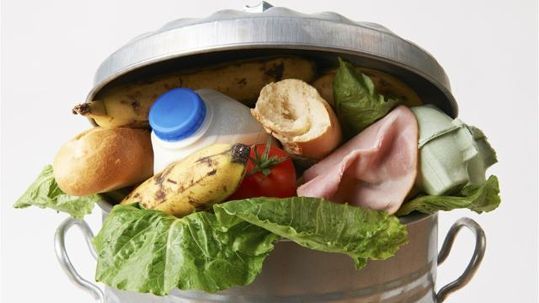 Sustainability is a big word being thrown around these days, but if we want to think about what it means for us on a personal level, we should start at home. Earth day is the practice of caring for and reaping the benefits of nature for our health and pleasure while making it possible for the next generation to do the same.
Sustainability is a big word being thrown around these days, but if we want to think about what it means for us on a personal level, we should start at home. Earth day is the practice of caring for and reaping the benefits of nature for our health and pleasure while making it possible for the next generation to do the same.
Celebrating Earth day makes me think about all the discussions around future food shortages and current food waste. Earth Day is the perfect day to make a personal contribution to solving the problem by starting in our own fridges and pantries.
Apples past their prime? Core and dice them into a morning serving of oatmeal. Strawberries looking a bit bruised? Add a few tablespoons of local honey or maple syrup and cook into a jam to spread on toast. Just add a little lemon rind and a pinch of salt to preserve naturally for up to 10 days.
Find some carrots and celery from last week’s shopping trip? Peel and chop them and add to the leftover rotisserie chicken, add a few cups of seasoned fork garden stock (also made from discarded peels and parsley stems) and transform into a hearty chicken soup with the addition of brown rice or whole wheat noodles. Also, add those fresh or dried herbs that might not make it much longer if not used today. Leftover rice and beans? Add some protein and roll into a tortilla for a homemade burrito and top with homemade salsa made from tomatoes and peppers that have reached their peek!
Stale bread should never be thrown away as it is perfect for homemade bread crumbs, stuffing from scratch, French toast or just use to feed the birds-but never, never in the trash. Can’t eat it all? Bring a tray to the neighbor, save some for lunch tomorrow, freeze for the following week but never throw it away.
On Earth Day we honor Mother Nature and the abundance she bestows upon us and if we follow some of these basic principles, not only will we cut down on food waste, but we will be less likely to order expensive, fattening take-out for lack of a game plan for dinner in a pinch. Following these tips can help all of us provide better nutrition for ourselves and our families, and help us keep more of our hard-earned money for a rainy day!
Food sustainability Tips
1. Keep a chalk or white board near the fridge and write down what is in fridge or pantry that needs to be used this week.
2. Make a meal list from the items on the board for the coming week. This way you only buy exactly the amount of food you need to make those meals.
3. Never buy fresh veggies in bulk unless you are feeding a very large family. Buy what is in season and if you buy a veg or fruit on sale, use immediately.
4. Store things for best shelf life: like they are stored in the market. Don’t store onions, squashes, garlic, potatoes, tomatoes, or avocados in the fridge. Keep in a cool, dry, dark place and plan around those items (after listing on your board). Remember that out of sight, out of mind.


